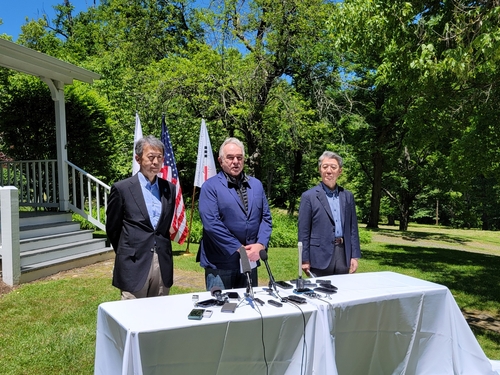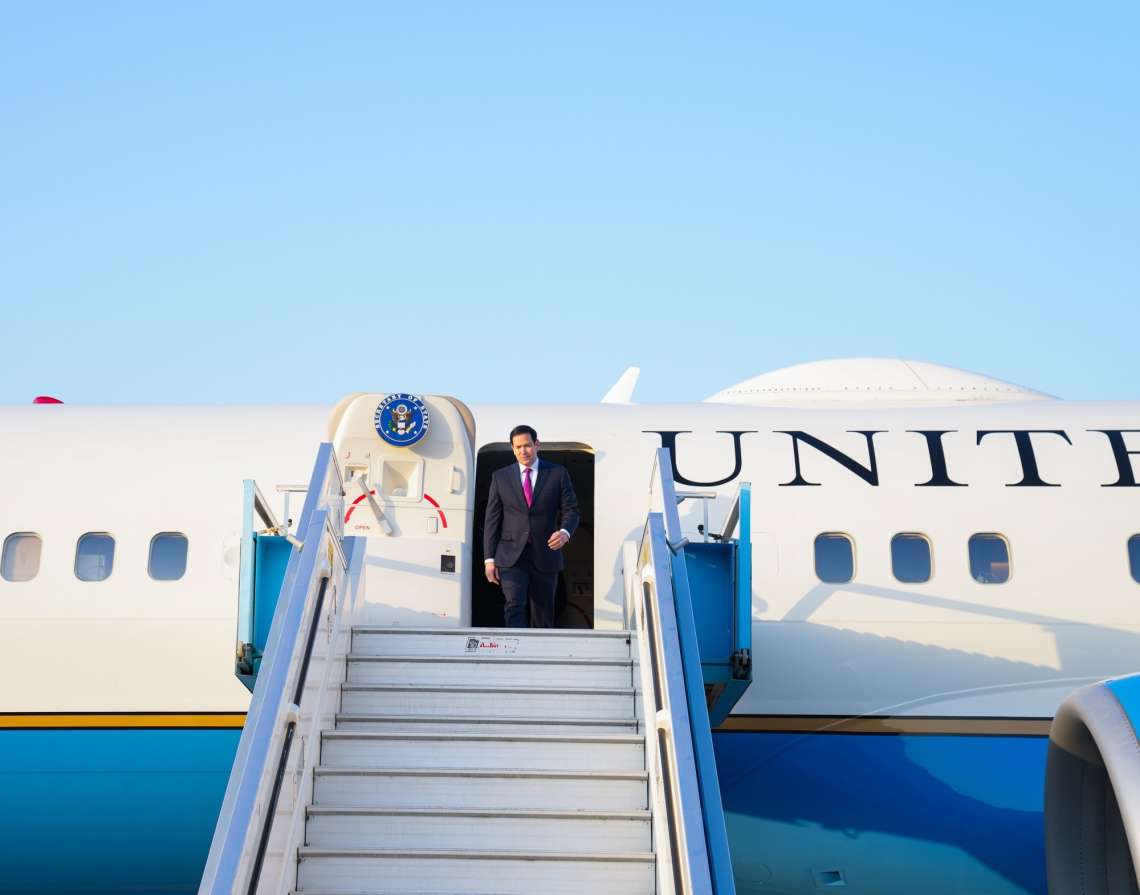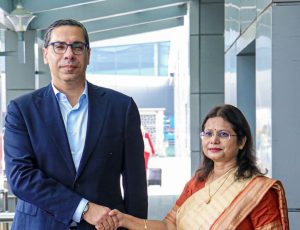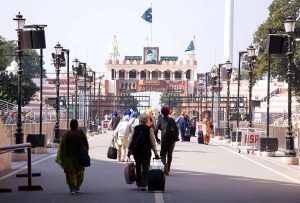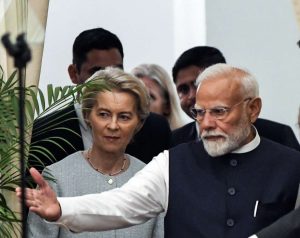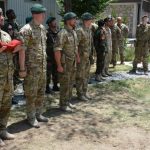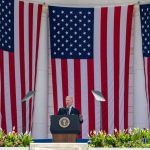The meeting came as tensions heightened on the peninsula due to Pyongyang’s failed launch of a military reconnaissance satellite on Monday….reports Asian Lite News
Senior diplomats of South Korea, the US and Japan “strongly” condemned North Korea’s recent satellite and missile launches and reaffirmed their commitment to the “complete” denuclearisation of the Korean Peninsula as they held trilateral talks in Virginia.
US Deputy Secretary of State Kurt Campbell, South Korean Vice Foreign Minister Kim Hong-kyun and Japanese Vice Foreign Minister Masataka Okano issued a joint statement after the meeting at Campbell’s private retreat at Iron Bell Farm on Friday, where they unveiled a plan to form a “coordinating mechanism” for trilateral cooperation, reports Yonhap news agency.
The meeting came as tensions heightened on the peninsula due to Pyongyang’s failed launch of a military reconnaissance satellite on Monday and its artillery drills involving what it called super-large multiple rocket launchers days later.
“We strongly condemned the DPRK’s recent launches using ballistic missile technology, including a so-called ‘military reconnaissance satellite,’ which took place in violation of multiple UN Security Council (UNSC) resolutions,” they said in the statement. DPRK stands for the North’s official name, the Democratic People’s Republic of Korea.
“We reaffirmed our commitment to the complete denuclearisation of the Korean Peninsula, and call on the DPRK to engage in substantive dialogue with us, without preconditions,” they added.
Campbell reiterated that the US commitments to the defence of South Korea and Japan are “ironclad” and backed by the full range of capabilities, including nuclear, and reaffirmed the US pledge to strengthen extended deterrence with the two Asian allies, according to the statement.
Noting that the trilateral partnership is “essential” to security in the Indo-Pacific, they expressed their strong opposition to any unilateral attempts to change the status quo in the waters of the Indo-Pacific and recognised the importance of opposing unlawful maritime claims in the South China Sea.
To further “institutionalise” trilateral cooperation, the three diplomats instructed their respective teams to “expeditiously develop parameters for a trilateral coordinating mechanism,” they said.
The coordinating body, if established, is expected to be the culmination of the three countries’ efforts to reinforce three-way cooperation that has picked up pace amid improvement in bilateral ties between Seoul and Tokyo, long frayed over historical feuds.
“We’re committed to forming some sort of coordinating body, a secretariat of some kind,” Campbell said during a press availability before the talks. “We have been tasked by our leaders to support and to make sure that we maintain forward momentum on the important work of this trilateral grouping.”
Commenting on continued North Korean provocations, Campbell pointed out Washington’s efforts to have China exert its influence in order to address security challenges from Pyongyang.
“We’ve made very clear about our concerns of North Korea’s provocative actions,” he said. “We asked China to weigh in on Pyongyang to ask them to, first of all, refrain from such action and to accept the offers of dialogue and diplomacy that each of our three nations put on the table.”
He also underlined Beijing’s close ties with Pyongyang along with its “anxieties” about the North’s military transactions with Russia.
“I think they too, have some anxieties of steps that North Korea has taken with respect to providing dangerous military equipment to Russia in this desperate time of battlefield tensions in Ukraine,” he said. “We will continue to make our case with China and other countries about our concerns about North Korean activities.”
Asked about the debriefings he received from South Korea and Japan about their trilateral summit with China in Seoul on Monday, Campbell said that the US welcomes “renewed” diplomacy among Seoul, Beijing and Tokyo.
“We appreciate the partnership with both Japan and South Korea, trusting us with a very deep and sincere debrief,” he said. “We welcome the steps towards increasing dialogue and discussion on the critical matters of Northeast Asia.”
Campbell said that Friday’s three-way talks were aimed in part at preparing for a trilateral summit between South Korean President Yoon Suk Yeol, US President Joe Biden and Japanese Prime Minister Fumio Kishida later this year.
Asked about the possibility of a three-way summit being held on the margins of the North Atlantic Treaty Organization summit in Washington in July, he said that no exact decision has been made yet.
“I think we’re committed to doing a trilateral meeting at the leader level. We haven’t decided exactly,” he said. “This is the highest priority for us for the remainder of this year.”
Vice Foreign Minister Kim highlighted the North’s continued violation of UNSC resolutions, including its arms transfers to Russia.
“Despite strong warnings from the international community, Russia and North Korea are continuing the illegal arms transactions or transfers of refined oil,” he said. “We will continue to work together with the international community to curb the unlawful Russia-North Korea cooperation.”
He also commented on ongoing efforts to find an alternative to the now-disbanded UN expert panel tasked with monitoring the enforcement of anti-North Korea sanctions.
“It will take some time, but we have already begun our discussion on this issue,” he said. “The goal is to find a more effective mechanism to monitor the implementation of UNSC resolutions.”
Prior to the trilateral talks, Campbell and Kim held bilateral talks, where they discussed North Korea-related issues.
“The two officials condemned the Democratic People’s Republic of Korea’s hostile rhetoric, actions and ongoing human rights abuses,” Matthew Miller, the State Department’s spokesperson, said in a readout.
“They also discussed support to Ukraine in the face of Russia’s brutal war and shared insights on the People’s Republic of China, emphasising the need to maintain peace and stability in the Taiwan Strait and uphold the rules-based international order.”

